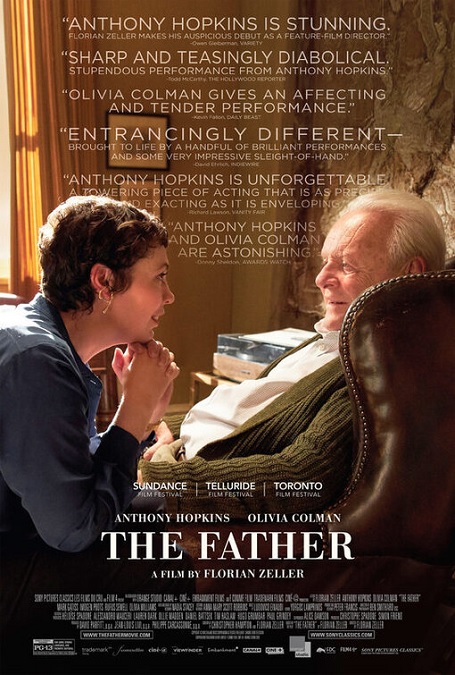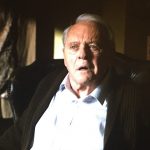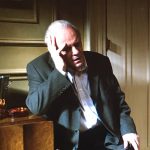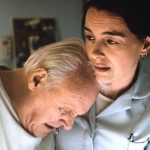



2020-21 – The Father
This movie was a good drama. Like many dramas, it moved at a very slow pace, but here, I think that was actually appropriate. The problem is that it makes it a little boring to watch. The acting was incredibly good, but there was very little actual story, and the hour and a half movie felt like it went on just a little too long. At least the film’s climax was perfectly executed and incredibly emotional to watch. It also tied the movie together in a very definitive way, but I’ll get to that in a bit.
The film had a pretty small cast, and was based on a dramatic French stage play called Le Père. The great Anthony Hopkins played the lead, Anthony, an older British man suffering through dementia. Apparently, this screenplay was written with Hopkins in mind, and he did such a good job! I’m not surprised he won the Oscar for Best Actor for his performance. I’m certainly not a Hopkins aficionado, but I’ve never seen him in such a vulnerable or fragile role. He was amazing!
His daughter, Anne was played by Academy Award winner Olivia Colman. I think her performance was just as powerful as her co-star’s. Anne has to take care of a man who can be as cruel as he is kind, having to deal with his moods and failing memories. She is heartbreaking to watch as she realizes her father cannot remember who she is, or the terrible fact that her sister has been dead for a long time. Colman really brought the character to an emotional level that was completely, tragically relatable.
Rufus Sewell played Anne’s husband, Paul, a man who was not able to compassionately deal with his wife’s emotional need to care for her ailing father. Imogen Poots had a small role as a hired caretaker who happened to look like the dead sister, Lucy.
And the final two members of the cast, who were listed in the credits as The Woman and The Man, were Olivia Williams and Mark Gatiss. They turned out to be employees of the nursing home that Anthony eventually finds himself in, she a nurse, and he a doctor. However, throughout the film, they appear in different roles. At times, they appear as Anne and her husband, Paul.
And, you see, that epitomized the main thrust of the movie. Sure, there have been other dramas that have dealt with the difficult subject of old age dementia. But never before has there been a story told so effectively from the perspective of the one suffering. Locations, characters, and even events were all presented out of sequence, confusing the audience as completely as the victim. It was so effective in the way it let the viewers experience dementia. Furniture would move with no explanation as to why. A character would leave the room, and vanish as if they were never there. Scenes would play out multiple times with different people playing the characters. It was intentionally confusing and disorienting. Director Florian Zeller did a great job of keeping it all together in a cohesive way, while at the same time, making it clear that reality was slowly falling apart.
Dealing with a family member or loved one who is suffering through dementia is difficult for the caregivers, but it is so easy to forget that it must be ten times worse for the sufferer. Imagine how terrifying it must be to be utterly confused, all the time, not knowing where you are, who is in the room with you, and not fully understanding why you can’t grasp something as simple as putting on a sweater. It is hard for an outsider to watch, but would be terribly frightening to experience.
In the end, Anne puts her father into a nursing home. The final scene where Anthony wakes in an unfamiliar room with people he doesn’t recognize is heartbreaking. He asks for his daughter, and is told that she has been living in Paris for months. He breaks down in tears, asking for his mommy, as if he can’t remember that he is an old man. But it gets even worse when it becomes clear that he can’t even remember his own name. Incidentally, I have to give Olivia Williams a special mention, for playing this final scene so wonderfully, as the nurse who helps him through his crisis. If only all nurses, everywhere, showed such empathy and compassion to people in distress. Hopkins made the scene dramatic. Williams made it beautiful.
Llike I said, I’ve never seen Anthony Hopkins break down into sobbing tears powered by fear and shame, as he admits to his nurse that he is aware that his memory is failing him. I’m sure it was this final dramatic climax that really earned Hopkins his Oscar. This movie was nominated for six Academy Awards, and took home two, the other being for Best Adapted Screenplay. Slow as it was, this movie was certainly a worthy Best Picture nomination.








